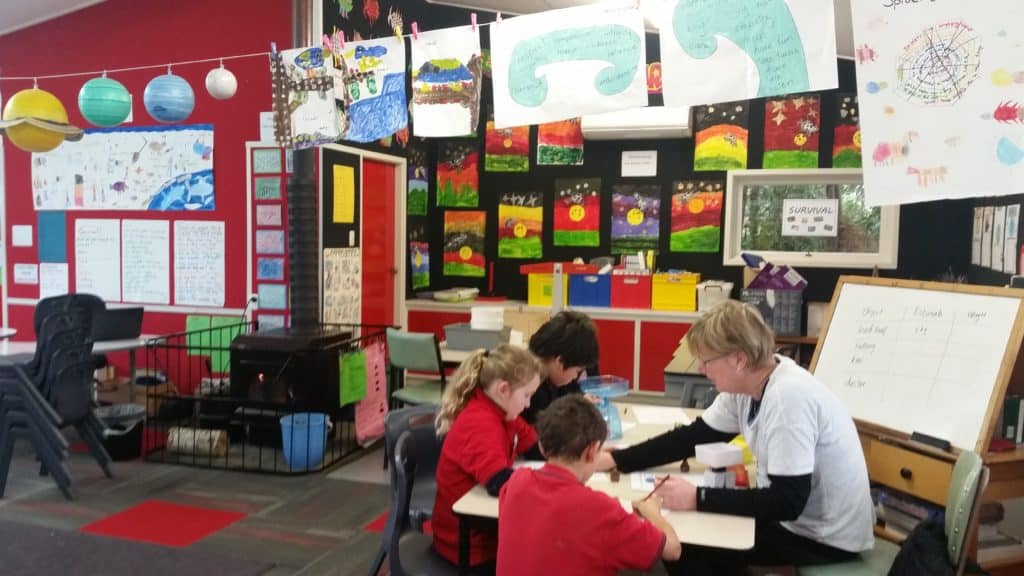A Comprehensive Guide for Parents on Elementary Schools in New Zealand
Welcome, Kiwi parents and guardians! Are you on a quest to find the perfect elementary school for your little ones in the beautiful lands of Aotearoa? Well, you’ve landed in just the right spot! Our insightful guide is here to sprinkle some joy on the sometimes daunting task of navigating through the education system in New Zealand. ??
New Zealand offers a flourishing educational environment for young minds, and as a parent, you want nothing but the best for your child. From understanding the structure of the education system to choosing a school that aligns with your child’s needs; we’ve got your back every step of the way. ?
Understanding the Education System in New Zealand
Let’s dive in with the basics! The New Zealand education system can be your best friend in setting a strong foundation for your child’s education journey. Elementary or primary education in New Zealand caters to children from years 1 to 8, typically aged 5 to 13 years old. Schools here are well-renowned for their inclusive approach and diverse curriculum that encourages holistic development. ??
Types of Elementary Schools in New Zealand
Before we hop onto the school selection train, let’s get familiar with the different types of schools your child can attend:
- State Schools: These are publicly funded and cater to the majority of Kiwi kids. You’ll find that they reflect the diverse community that surrounds them.
- State-Integrated Schools: Originating from private schools, these are now part of the state education system but retain a special character based on religious beliefs or educational philosophy.
- Private or Independent Schools: These operate independently of government funding and can offer unique curriculums and facilities.
- Special Schools: Tailored for children with special educational needs, these institutions ensure that every child receives the necessary care and attention.
Finding the Right Fit: What to Look for in a School
Choosing a school is like picking a new home for your child’s brain – it must be a snug, inspiring, and nurturing environment. Here’s what you should consider:
- Culture and Values: Does the school’s ethos resonate with your family values? Culture is the invisible thread that ties the school experience together.
- Learning Approaches: How does the school deliver its curriculum? Look for teaching methods and approaches that will engage and challenge your child.
- School Facilities: Playgrounds, libraries, and sports fields are more than just bricks and mortar – they are pivotal for a rich school life!
- Community Involvement: Schools deeply rooted in their communities foster a supportive environment for children to thrive.
- Additional Programmes: Enrichment opportunities like music, arts, and languages can be the cherry on top of a well-rounded education.
The Enrollment Process: Securing a Spot for Your Child
Got your eyes set on a school? Fantastic! The next step is understanding the enrollment process. Here are some essentials:
- Zoning: Many state schools have a zone or geographical area they serve. Living within the zone usually gives your child preference for enrollment.
- Application Pack: Gather your documents! You’ll typically need your child’s birth certificate or passport, proof of address, and immunization records.
- Visiting Days: Most schools have open days or school visits. Don’t miss out on these valuable opportunities to soak in the school’s atmosphere and meet the staff.
- Special Requirements: For special schools or needs, additional documentation may be required to ensure the school can cater to your child.
Finding the right school can be a milestone moment for your family. With our guide, you are now equipped with the knowledge to make an informed decision. Remember to visit the schools, ask questions, and trust your parental instincts. After all, you know your child the best. And that’s just the beginning! Stay tuned as we’ll delve deeper into what makes each type of school unique, and how to prepare your child for a smooth transition to elementary school life. The road to your child’s educational success starts here!

5 Essential Things Parents Should Know in Preparing for Elementary Schools in New Zealand
Starting school is a big adventure for both children and parents. As you prepare for this exciting journey, here are five key things to keep in mind:
1. Start the Conversation Early
Becoming part of a new world filled with learning and play is a grand step for your little one. Begin by talking about school positively, discussing what they can expect, and listening to any questions or concerns they may have. Familiarize them with the concept of school, their new routine, and the fun they’ll have discovering new things.
2. Establish a Routine
Routines provide children with a sense of security and help them develop self-discipline. Before school starts, establish a consistent bedtime and morning routine to help alleviate first-day jitters. This can include laying out clothes the night before or deciding on breakfast options together.
3. Attend Pre-School Orientations
Many New Zealand schools offer orientation or transition-to-school programs. These are invaluable opportunities for your child to meet future teachers and classmates. Make sure to partake in these moments so that when the school term starts, your child will feel more prepared and less anxious about the change.
4. Foster Independence
Promoting self-care skills such as dressing, eating and toileting, encourages independence and confidence. Give your child practice in tasks they’ll need at school like opening their lunchbox, managing their own clothing, and understanding personal hygiene.
5. Encourage Social Skills
Being sociable is part of school life. Help your child develop social skills by arranging playdates with other children or engaging in group activities. It’s a great way for them to learn about sharing, cooperation, and making friends, making the transition to school smoother.
Preparing for Day One: Setting Up for Success
The first day of school is a memory in the making and setting your child up for success can make all the difference. Ensure their school bag is packed with the essentials, labeled with their name, and talk them through what each item is for. Discussing the school day schedule can also help them feel more in control.
Here’s a quick checklist for that special first day:
- School Uniform: If required, try it on before the big day to ensure everything fits comfortably.
- Lunch and Snacks: Prepare a nutritious lunch and explain how and when to eat what you’ve packed.
- Stationery and Supplies: Pencils, erasers, and exercise books are the basic tools for learning. Having these ready will help your child feel prepared.
- Comfort Item: If your child has a favorite toy or book, check with the school if they can bring it for comfort.
- Contact Information: Make sure your child knows their full name, address, and parent or guardian’s name, just in case.
Remember, this transition is an ongoing process that doesn’t end after the first day. Stay involved with your child’s school journey by attending parent-teacher meetings, volunteering when possible, and keeping an eye on the school’s communication so you’re always up to speed. With each day, your child will grow more comfortable and so will you. Good luck, and enjoy this beautiful chapter in your family’s story!
See more great Things to Do with Kids in New Zealand here. For more information see here
Disclaimer
The articles available via our website provide general information only and we strongly urge readers to exercise caution and conduct their own thorough research and fact-checking. The information presented should not be taken as absolute truth, and, to the maximum extent permitted by law, we will not be held liable for any inaccuracies or errors in the content. It is essential for individuals to independently verify and validate the information before making any decisions or taking any actions based on the articles.




